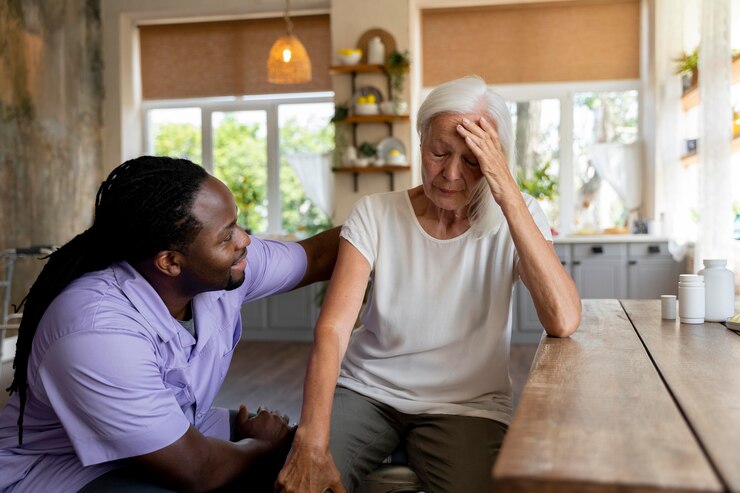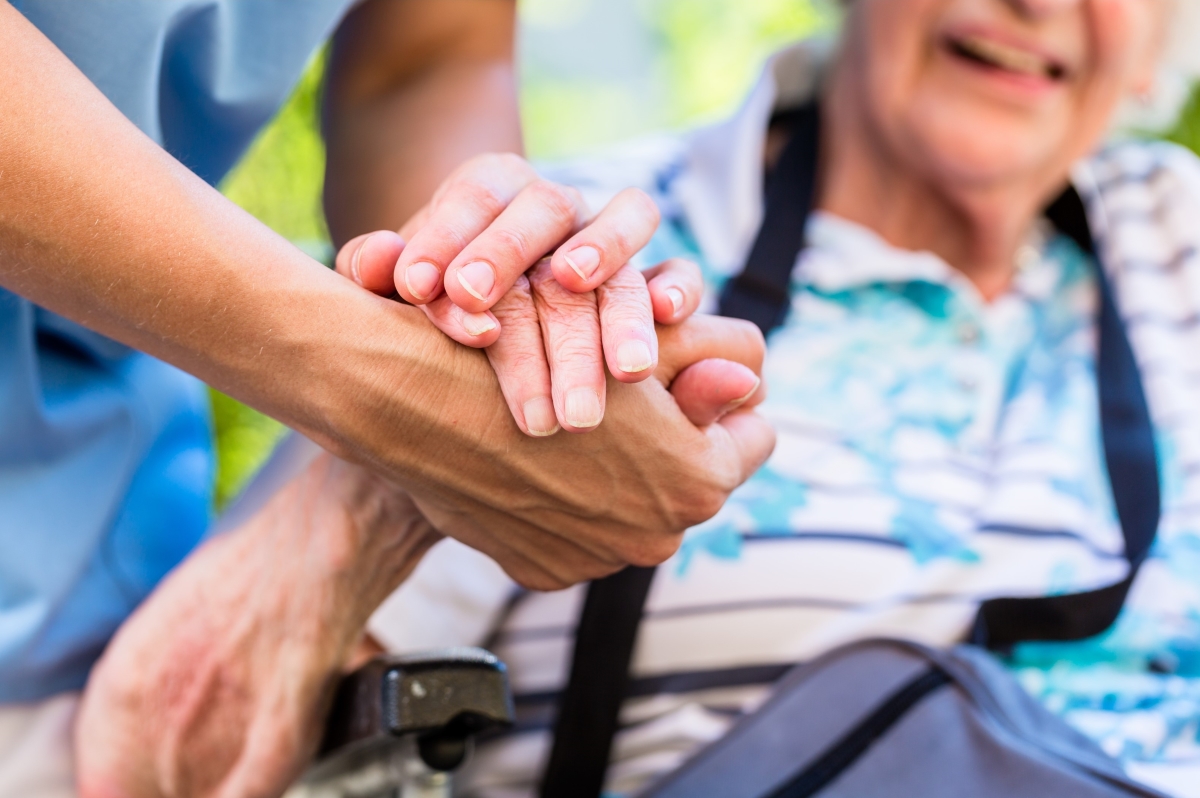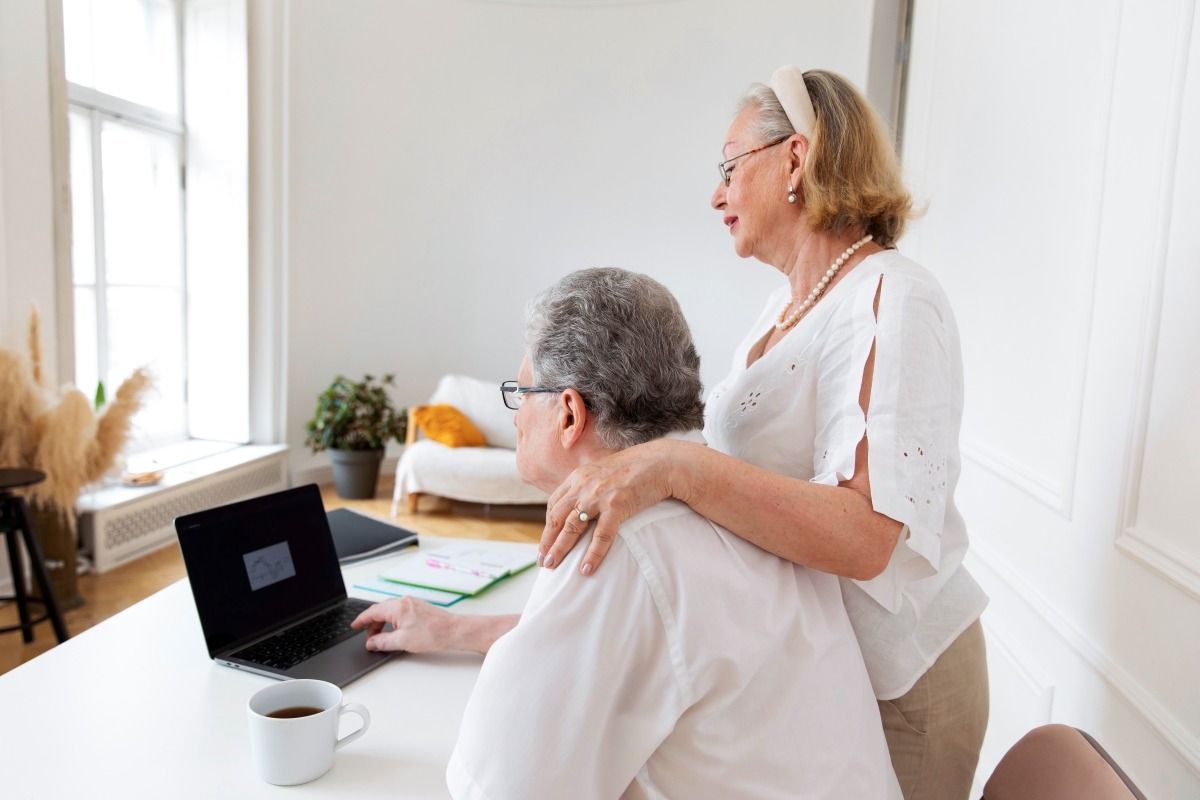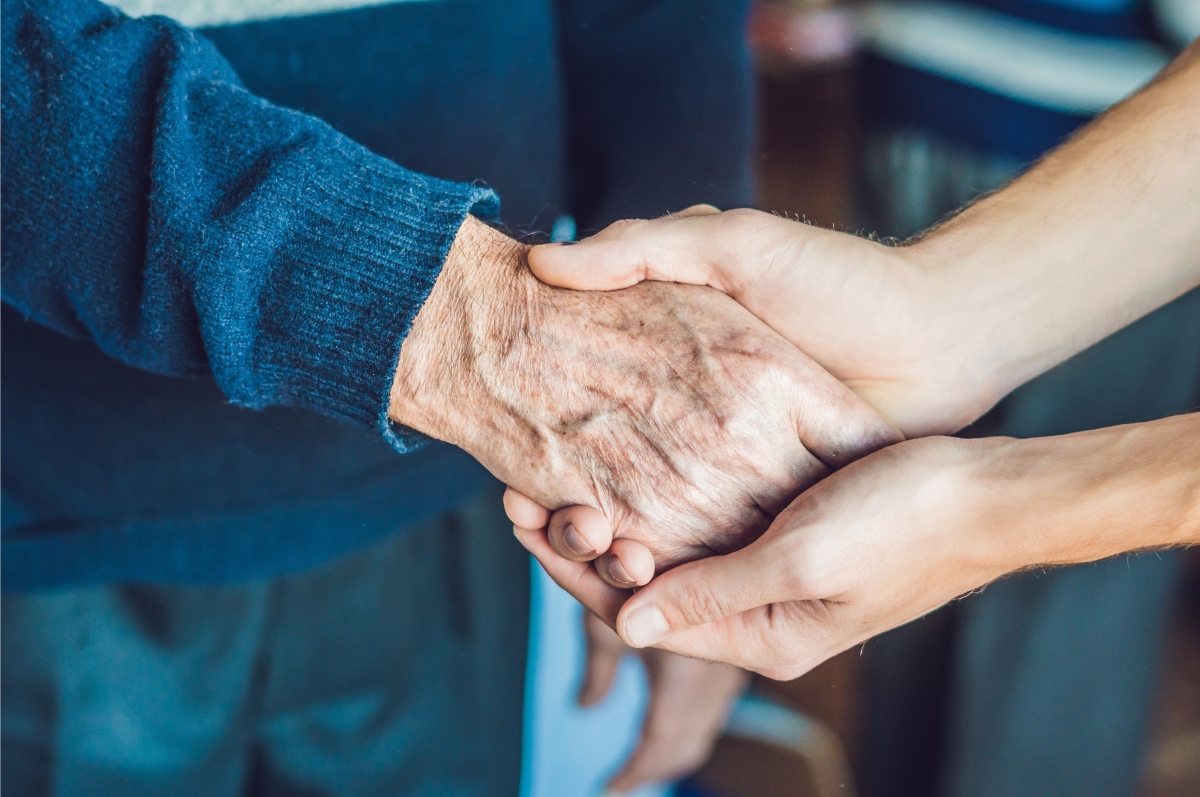Navigating Grief for Seniors: Finding Support After Loss

Losing a loved one is one of the most challenging experiences in life, and for seniors, this grief can be especially profound. The loss of a spouse, sibling, or close friend often brings with it not only emotional pain but also changes in daily routines, social circles, and even one’s sense of purpose. While grief is a natural and personal process, finding support and understanding how to navigate it can make the journey toward healing a little easier.
In this blog post, we will explore how seniors can cope with grief, find support, and discover ways to honor the memories of those they’ve lost while moving forward with resilience and hope.
Understanding Grief in Later Life

Grief doesn’t follow a linear path, and there is no “right” way to grieve. Seniors may face unique challenges when it comes to processing loss, particularly when they lose a spouse or long-time companion. This loss can lead to feelings of loneliness, isolation, and even anxiety about the future.
- The Different Stages of Grief: Many people are familiar with the five stages of grief: denial, anger, bargaining, depression, and acceptance. However, it’s important to note that not everyone experiences these stages similarly, and some may revisit certain emotions multiple times. Seniors may find it helpful to acknowledge that these stages are not set in stone, and it’s normal to experience grief in waves.
- Impact on Physical Health: Grief can also affect the physical health of seniors. The emotional stress of loss can exacerbate existing health conditions, disrupt sleep, and lead to changes in appetite. Pay attention to physical well-being during this time, ensuring that you stay hydrated, eat nutritious meals, and engage in gentle physical activity when possible.
- Facing Changes in Routine: Losing a spouse or close friend often results in a shift in daily routines. Tasks that were once shared may now fall solely on the surviving partner, which can feel overwhelming. Additionally, the absence of social connections or hobbies shared with the deceased may create a void. It’s important to be patient with yourself during this time of transition and to seek help when needed.
Finding Emotional and Social Support

One of the most important steps in navigating grief is seeking support from others. Whether through family, friends, or professional resources, connecting with people who can offer empathy and understanding can help alleviate feelings of isolation and loneliness.
- Family and Friends: While family and friends are often the first sources of support, it’s essential to communicate openly about your feelings and needs. Sometimes, loved ones may not fully understand the depth of your grief or may be unsure how to help. Letting them know what kind of support you need, such as a listening ear, help with daily tasks, or companionship, can strengthen your relationships and make the grieving process more manageable.
- Grief Support Groups: For many seniors, joining a grief support group can be incredibly healing. These groups provide a space to share experiences, offer mutual support, and gain insights into how others cope with similar losses. Organizations like GriefShare and local senior centers often host grief support meetings tailored to older adults. These meetings can foster community and reduce loneliness as participants realize they are not alone in their journey.
- Professional Counseling: Some seniors may benefit from talking with a grief counselor or therapist. Professional counselors can provide coping strategies, help work through complicated emotions, and offer a safe space to express feelings that may be difficult to share with family or friends. Many therapists specialize in grief counseling for seniors, and sessions can often be conducted in person, by phone, or even online, depending on personal preferences.
- Faith and Spiritual Communities: For seniors who are part of a religious or spiritual community, turning to their faith can provide comfort during times of loss. Religious leaders, spiritual guides, or fellow congregants can offer emotional support and practical assistance. Many churches, synagogues, and other places of worship also offer grief ministries or spiritual counseling to help guide individuals through their grieving process.
Rebuilding a Sense of Purpose

After a significant loss, it’s common for seniors to feel uncertain about their future and sense of purpose. Losing a spouse, sibling, or close friend may leave you questioning your role in life or how to spend your time. However, finding ways to engage with new or existing passions can help fill the void and bring meaning back into daily life.
- Engaging in New Hobbies: One way to rediscover a sense of purpose is to explore new hobbies or interests. Whether it’s learning a new skill like painting, gardening, or playing an instrument, trying something different can create a fresh sense of accomplishment and joy. Group activities like book clubs, art classes, or volunteer organizations can also help build new friendships and social connections.
- Volunteering: Volunteering is a powerful way to find purpose while positively impacting your community. Many seniors find that giving their time to help others through mentoring, charity work, or community service provides a sense of fulfillment. Organizations like the Retired and Senior Volunteer Program (RSVP) and Meals on Wheels offer opportunities to get involved, and these activities can also help seniors stay socially connected.
- Staying Physically Active: Physical activity benefits overall health and provides an outlet for managing grief. Low-impact exercises like walking, yoga, and tai chi can improve mood, reduce stress, and foster a sense of well-being. Many community centers and senior facilities offer fitness classes tailored to older adults, providing physical and social benefits.
Honoring and Remembering Loved Ones

Honoring a loved one’s memory is a meaningful way to stay connected with their legacy while healing from grief. Finding personal and creative ways to keep their memory alive can provide comfort and peace.
- Creating Memorial Traditions: Establishing new traditions to honor your loved one can be comforting. This might include lighting a candle on special occasions, visiting their favorite places, or organizing family gatherings in their memory. Memorial traditions allow seniors to reflect on cherished memories while continuing to celebrate the lives of their loved ones.
- Memory Books and Photo Albums: Creating a memory book or photo album is another way to preserve the legacy of a lost loved one. This process can be therapeutic, allowing seniors to reflect on shared moments and create a tangible collection of memories. Seniors can involve family members in this process, making it a collaborative way to honor their loved one’s life.
- Contributing to a Cause: Many people choose to honor their loved ones by supporting a cause or organization that is meaningful to the deceased. This might involve donating to a charity, organizing a fundraiser, or volunteering in their memory. Contributing to a cause that aligns with your loved one’s values can provide a sense of continuity and purpose during the grieving process.
Practical Tips for Self-Care During Grief

Grieving takes time, and it’s important to remember to care for yourself throughout the process. While focusing on emotional healing is natural, paying attention to physical health is equally important.
- Maintain a Routine: Establishing a daily routine can bring a sense of structure and normalcy, helping you cope with the unpredictability of grief. Simple routines like having meals simultaneously each day, getting regular exercise, and maintaining a sleep schedule can help you feel more grounded.
- Practice Mindfulness and Meditation: Mindfulness exercises and meditation can help seniors cope with the overwhelming emotions of grief. By focusing on the present moment, these practices can reduce anxiety and promote emotional clarity. Guided meditation apps, such as Headspace or Calm, offer programs specifically designed to help with grief and loss.
- Stay Connected: Isolation can worsen feelings of grief, so staying connected with loved ones and your community is important. Regular phone calls, video chats, or socially distanced visits can help maintain a sense of connection, even if you’re not ready to re-engage in social activities fully.
Conclusion

Grief is a deeply personal and unique experience, but seniors do not have to face it alone. By seeking support from family, friends, counselors, and communities, they can navigate the complex emotions that accompany loss. Engaging in meaningful activities, honoring loved ones, and focusing on self-care can help seniors rebuild a sense of purpose and hope after loss. These holistic approaches make healing possible, one step at a time.





